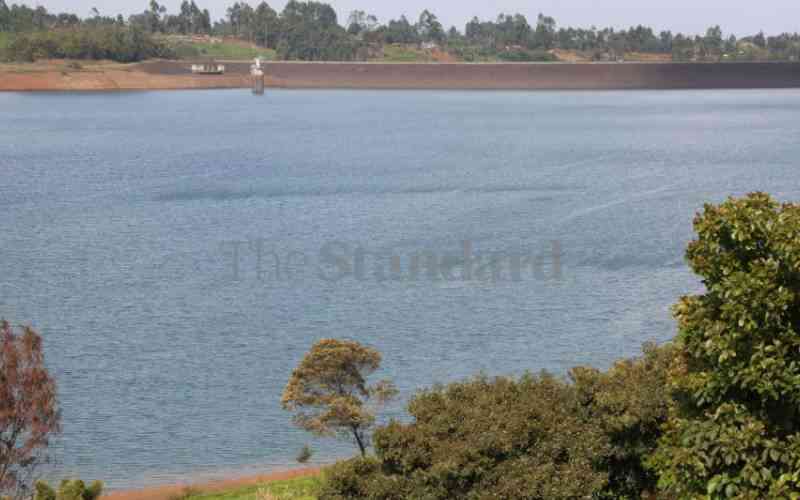NAIROBI: The Okoa Kenya Draft Bill proposes significant reforms that will benefit all Kenyans irrespective of their political affiliation.
It makes bold proposals that will spur grassroots development, promote harmony and inclusivity, ensure local communities benefit from natural resources, and fundamentally transform the management of elections.
The Bill advocates for an increase of devolved funds to 45 per cent of the revenues of “the preceding financial year”.
This will be a significant increase from the current 15 per cent of “the most recent audited accounts”.
At the same time, the Bill recommends greater accountability by making it mandatory for Governors to file quarterly returns of county revenues, expenditures and development priorities with the Senate and the county assemblies.
This will eliminate the opaqueness with which governors have managed county funds, and will ensure greater public participation in setting of priorities and in monitoring and evaluation.
The Bill proposes that 5 per cent of devolved funds should go towards a Ward Development Fund (WDF).
Parliament will be required to legislate to give effect to this proposal. Each ward in the country has an administrator who reports directly to the governor.
The work of these administrators has been seriously hindered by lack of funding and they have been reduced to flower boys and girls at county functions.
The WDF does not have to be managed by members of county assemblies, but rather by the administrators in close consultation with the ward leadership.
This constitutional provision will ensure that wards do not suffer neglect any time their leaders differ with the governor.
On electoral reforms, the Bill makes several proposals beyond the composition of the Independent Electoral and Boundaries Commission (IEBC).
An electoral commissioner is a political job and you cannot leave out political party interests.
However, any perception of bias can be mitigated by the proposal to include Articles 83A, 86A, 86B, 86C and 88A.
These articles impose high standards of probity and transparency, provide for a single voters’ register and obliges IEBC to use electronic voter identification among other measures.
Stay informed. Subscribe to our newsletter
The Bill further seeks to cure the gap that led to the dispute arising from the last two general elections and proposes that results of elections shall be announced at the Constituency level and this will be final.
Currently, the chairperson of the Electoral Commission is the sole Returning Officer for presidential elections.
This means s/he can declare presidential results that are inconsistent with the actual results declared at the constituency.
The Bill seeks to get rid of the “Tharaka Nithi” culture in declaring presidential election results.
The Bill has gone into further details on electoral reforms, even setting a target for IEBC to ensure they register not less than 80 per cent of eligible voters in all electoral areas.
Without such targets, IEBC will continue to favour certain electoral areas at the expense of those considered to be in the Opposition.
Regarding the Constituency Development Fund (CDF), the Bill recommends that this should be used to undertake approved functions of the national government in each constituency. There is nothing in this provision that conflicts devolution.
The national government still retains 55 per cent of revenues and will be expected to undertake projects and functions that are distinct from the devolved governments.
The CDF proposal is not a sweetener but a realistic acknowledgement that the national government must still be allowed to reach out to the people at the grassroots.
The only reality is that as more functions get devolved, the amount allocated to CDF for national government projects will also be expected to reduce.
On land reforms, the Bill seeks to address the unfortunate conflict that we have witnessed between the National Lands Commission (NLC) and the Lands ministry.
Part of the drama is due to the gap in defining responsibility for management of national land registries.
The Bill proposes NLC shall exclusively administer all registries, processes and dispositions in respect of public, private and community land in Kenya.
This Bill presents the first opportunity for us to address some of the outstanding defects of the 2010 Constitution.
There is still space for other political players to present proposals on the issues that Prof Karuti feels have been left out like electoral system reforms and the gender representation rule.
This could be a good opportunity for Jubilee to use its tyranny of numbers for once to make a positive contribution to the Constitution.
Political commentators have observed that a referendum will affect economic activity in the country.
This is partly true, going by historic trends where economic growth has dipped whenever we have a national political contest.
But it is also a fact that key sectors like tourism and agriculture are currently doing very badly under the Jubilee government even when we do not have a political contest.
The bottom line is that the Okoa Kenya Bill does not need to end up in a divisive and growth-inhibiting referendum.
The CORD Coalition has demonstrated statesmanship by calling upon all political parties for a national dialogue on the proposals.
This would be a less painful and more inclusive approach to reach consensus on the most important constitutional reforms.
It is the arrogance of the Jubilee Government that has left Kenyans with no option but to go the popular initiative route.
If Jubilee persists with its intransigence, there is still an opportunity for the county assemblies, the Senate and the National Assembly to soberly debate the merits of this Bill and to approve it so as to reduce the costs and divisions associated with a referendum.
 The Standard Group Plc is a
multi-media organization with investments in media platforms spanning newspaper
print operations, television, radio broadcasting, digital and online services. The
Standard Group is recognized as a leading multi-media house in Kenya with a key
influence in matters of national and international interest.
The Standard Group Plc is a
multi-media organization with investments in media platforms spanning newspaper
print operations, television, radio broadcasting, digital and online services. The
Standard Group is recognized as a leading multi-media house in Kenya with a key
influence in matters of national and international interest.
 The Standard Group Plc is a
multi-media organization with investments in media platforms spanning newspaper
print operations, television, radio broadcasting, digital and online services. The
Standard Group is recognized as a leading multi-media house in Kenya with a key
influence in matters of national and international interest.
The Standard Group Plc is a
multi-media organization with investments in media platforms spanning newspaper
print operations, television, radio broadcasting, digital and online services. The
Standard Group is recognized as a leading multi-media house in Kenya with a key
influence in matters of national and international interest.







